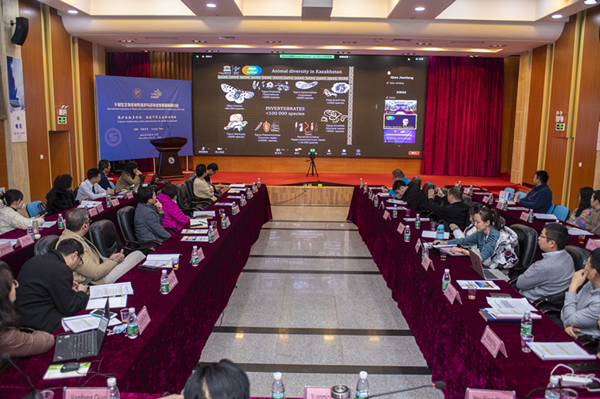


An international seminar on biodiversity protection and sustainable development in arid areas was held by the Xinjiang Institute of Ecology and Geography (XIEG) of the Chinese Academy of Sciences on December 16.
More than 200 experts and scholars from more than 10 countries and regions such as China, South Africa, Senegal, Mauritania, Ethiopia, the United States and Germany attended the seminar online and offline.
Representatives from the Department of Nature and Ecology Conservation of the Ministry of Ecology and Environment, the Science Division of the United Nations Environment Programme, the Secretariat of the Convention on Biological Diversity, the UN Convention to Combat Desertification, the UN Educational, Scientific and Cultural Organization, the Representative Office of the UN Development Programme, and the Secretariat of the “Belt and Road” Alliance of International Science Organization addressed the meeting.
The attendees also exchanged ideas and reached a consensus on protecting biodiversity and building a shared future for all life in arid areas through keynote speeches and a round-table meeting on December 17.
They focused on the problems and challenges faced by biodiversity in arid areas, and exchanged ideas on the current situation as well as suggestions and countermeasures for biodiversity conservation in ecologically fragile areas.
They called on all parties to cooperate closely to build a shared future for all life in arid areas and participate in biodiversity conservation, as well as contribute their wisdom to the Post-2020 Global Biodiversity Framework.
CAS academicians Fu Bojie and Wei Fuwen, as well as experts from research institutes in Kazakhstan, South Africa, Mauritania and CAS’s XIEG made keynote speeches on biodiversity in arid areas.
They pointed out the great pressures and challenges to biodiversity there, such as fragile ecosystems that are sensitive to climate change, prominent land degradation and relatively lagging social and economic development.
The UN 2030 Agenda for Sustainable Development includes ensuring that no one will be left behind, which means that more than 7 billion people across the globe should benefit from the 2030 Agenda’s 17 Sustainable Development Goals.
Since arid areas play an important role in global biodiversity conservation, if biodiversity in arid areas is not protected and valued, the goals will never be achieved.
Source: Xinjiang Institute of Ecology and Geography (XIEG),
Chinese Academy of Sciences